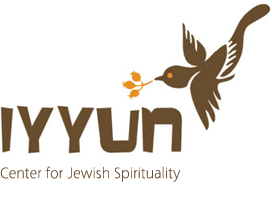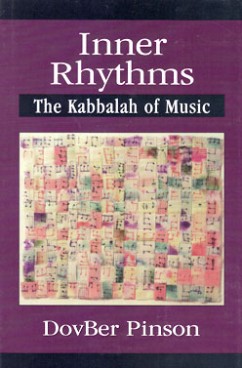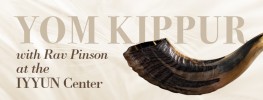Piyutim
On Rosh Hashanah (and Yom Kippur), we pray using a special prayerbook called the machzor. Among the many books of post-Talmudic times, the High Holidays’ machzor stands out. Unlike other books, it was not written by one inspired individual, but by many. As such, it is a book that embodies the yearnings, desires, worries and hopes of an entire people, expanding through a vast period of time.
Originally, the main body of the High Holiday services consisted of the regular daily prayers, with special holiday additions and assorted passages from the Bible. But as time went on, various known and unknown authors—sages, rabbis and inspired poets—composed hymns and verses based on the Bible and on Talmudic and Midrashic teachings. Communities began to introduce these piyutim, as they are called in Hebrew, into their prayer services, and the High Holidays’ machzor evolved.
Additionally, over the years, various cantors composed different melodies for these High Holiday prayers. Some were adopted the world over, so that today in synagogues across the globe, certain piyutim are sung with the same tune.
Many of these piyutim—the intent of which is to inspire and evoke greater attention—follow the Aleph Bet acrostic, where each verse begins with another letter of the Hebrew alphabet in consecutive order. Others are composed in the reverse order of the Aleph Bet, teaching us that there is no end to learning—when we finish we can go back again. Some spell out the composer’s name with the first or last letter of each verse—this is how these authors became known and are remembered today.
By some estimations, the number of piyutim composed over time reached the tens of thousands, yet only a select few were universally accepted and chosen to become part of the permanent High Holidays’ liturgy.
The greatest among the poets and writers of the piyutim was Rabbi Eliezer Ha’Kalir. Many identify him as the 2nd century sage, Rabbi Eliezer, the son of the great Rabbi Shimon Bar Yochai, while others place him at a later time. But certainly he was among the early sages, about whom it is said, “the early ones are like sons of angels.” (See Tractate Shabbas 112b.) Some speculate that Kalir was the name of his grandfather, but there is a tradition that kalir means “cake,” and that he was called so because he once ate a cake that was inscribed with Divine names, and his eyes were opened to behold infinite wisdom.
Another important writer, especially for the Yom Kippur prayers, was Rabbi Meshulam, the son of Kolonymous of Mainz who lived at the end of the 10th century.
A major influence in the selection process of what would constitute the machzor as we know it today was the renowned 16th century mystic, Rabbi Isaac Luria, popularly known as the Ari. He identified certain piyutim as being truly Divinely inspired and as likely to touch the hearts of generations to come. Some piyutim expressed the needs and dreams of a people in a particular era and culture, but those which have survived to this day are those piyutim that are eternal, having the power to inspire throughout all time.
By definition, poetry is a verbal composition designed to convey experiences, ideas or emotions in a vivid and imaginative way, with words carefully chosen for their suggestive power. As part of this genre, piyutim are no exception. The words of the great piyutim are imbued with deepest relevance and sometimes mystical meanings, some of which we will explore in the following commentary.
Praise in prayer
One of the more perplexing aspects of prayer is the concept of praising God. Praising God, says the Talmud (in Tractate Berachos 32a) is a requirement for prayer. We cannot begin to pray before we praise. While we may compare this to asking a friend for a favor—first you flatter him or her, then you make your request—can this work with God?
Also, it seems a bit odd that we should—or even that we could—praise God. If we truly believe in the words of our praise, and we surely do, and the Creator is omnipresent and omnipotent, then how can we, finite creatures, praise the One Who is beyond our comprehension?
Thus the question is twofold: 1) How can we, knowing quite well who we are, praise the Transcendence? And 2) Even if we can, why should we? Imagine a wealthy person being praised for the dollar he has in his pocket. Any words of praise uttered would appear trivial—they could hardly constitute praise. So why would we praise God? Certainly God does not need our praise, so why do we praise?
Praise reveals
There are multiple levels to understanding this perplexing phenomenon. The simple answer would be that praise is chanted not for God’s sake but for our own. Praising God makes us realize that it is worthy to pray only to God. Praising God helps us understand who God is in relationship to us, and that we should relate to the truth of our convictions. Praising the One Who is transcendent helps us make the transcendent immediate, real and relevant to us.
Clearly the Infinite is above any forms of praise we can conjure up, or for that matter beyond any form of praise, angelic praise included. Yet the purpose of praise is precisely to draw down that which is beyond, and to induce that which is utterly sublime and formless to come into form. Say for example, when we praise the Creator for being the healer of the sick, we are actually trying to arouse the Divine attribute of healing and draw down this awesome power of healing into our own world. The same is with praising the Infinite as mighty, powerful, kind, and merciful.
Praise is the revealing agent. By praising the One Who is transcendent as kind, we call forth Divine kindness, and by praising Divine wisdom, we draw down wisdom. The praising awakens the above to be drawn below, and thus that which is awakened becomes tangible in our immediate reality. Simply then, Divine kindness and blessings are manifested in our life.
From formless to form
By praising God, we induce the above to descend below. Praise brings about the drawing down from the essence of God’s endless light (or ein sof) into the vessels (kelim) of our world.
Though we draw down the essence, as it were, of the or ein sof, the light remains undividable. The essence of Divine light does not change by descending into earthly vessels. True, the Divine will manifests itself differently. For example, to one person it will come through the vessel of loving-kindness (chesed), while to another it will come through the vessel of restraint (gevurah); still the light does not change; only its revelation changes—the same light is seen in different colors through the filters of the different vessels.
The change that occurs through prayer in the Creator’s will is not a change in God, as God is changeless and cannot be influenced by us; rather God’s will assumes another “form,” so to speak. Whereas before the light appeared as the “red” of harsh judgment, now the Divine light appears as the “blue” of kindness.
To better understand this, it helps to think of Divine energy as clear water being filtered through colored funnels. In reality, the water never changes, though to the observer the red funnel looks like it contains red water and the blue funnel like it contains blue water, but this is only the perception of the observer—the water itself is the same and colorless.
Praying to the Essence
It is important to understand that, although the Divine influx is manifested via vessels, nevertheless, when we pray, we pray to God’s essence and not to any heavenly vessels or attributes. The vessels are merely the vehicles that carry the Divine energy, and they are obviously not independent of God. The only force is God; there is only God; it is to God alone that we pray, and God alone Whom we entreat.
If this was a time of earthly kings and we needed to petition the king for justice, we would ask that he direct his magistrate to carry out his order. Similarly, if we were asking the king for a gift, we would ask that he order the treasurer to dispense it. As the below mimics the above, so too, when we ask God for mercy, we keep in mind the emanation/vessel of mercy, and when we ask God for justice, we keep in mind the emanation/vessel of strength. But all the while, we focus our request on God’s essence alone. (Teshuvas Ha’rivash. 157)
Of course, a distinction must be made between an earthly king and his ministers and the or ein sof and the vessels. (Derech Mitzvosecho. Tefilah 8.) The king and his ministers are, in fact, separate entities, and it is precisely the ministers who carry out the decrees, but God alone is the judge and the dispenser of all decrees. Rather, God uses the vessels as tools to manifest below. The or ein sof penetrates the vessel of chesed to manifest kindness and utilizes gevurah to channel stringency.
In our prayers, after singing the verses of praise, we conclude by saying, “Who chooses our song of praise, the King alone.” We are thus acknowledging that even as we sing songs of praise and draw down Divine flux into our lives, bringing kindness and mercy into our lives and into the coming year, we are very much aware that the King is forever one. Though manifest in our world in various forms, the Infinite One remains unified and whole. The gift of prayer is that we can tap into this reality, and sense this unified oneness.







